Hurricane Otis, Mexico
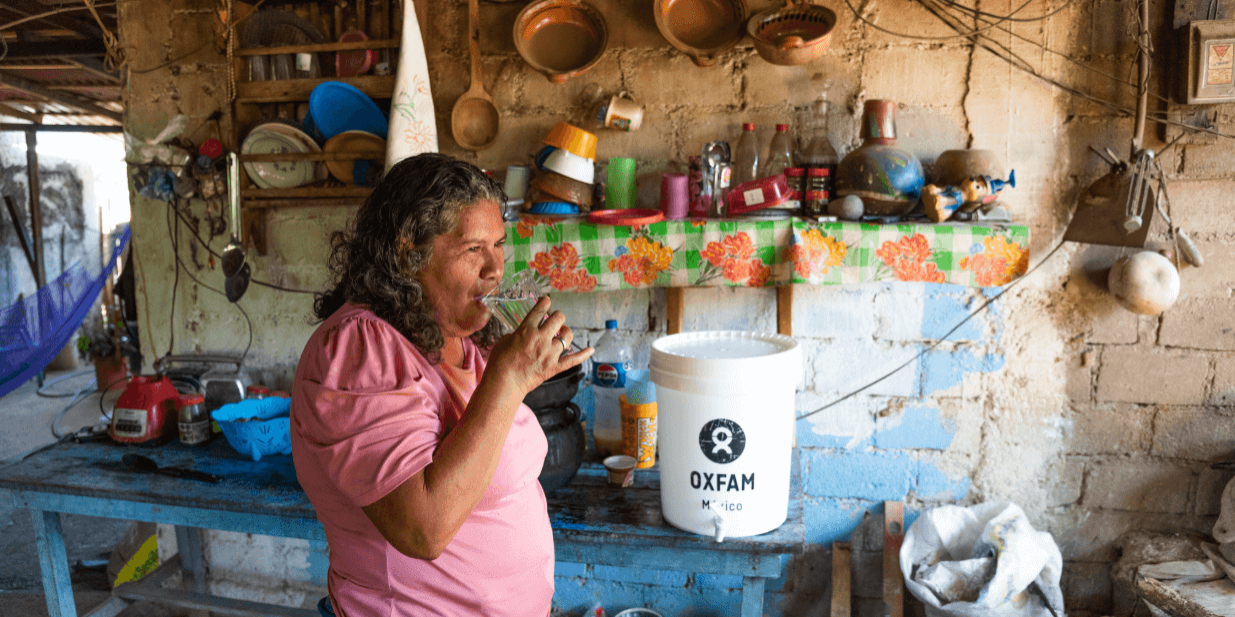
A community member enjoys safe and clean water. Photo: Oxfam Mexico
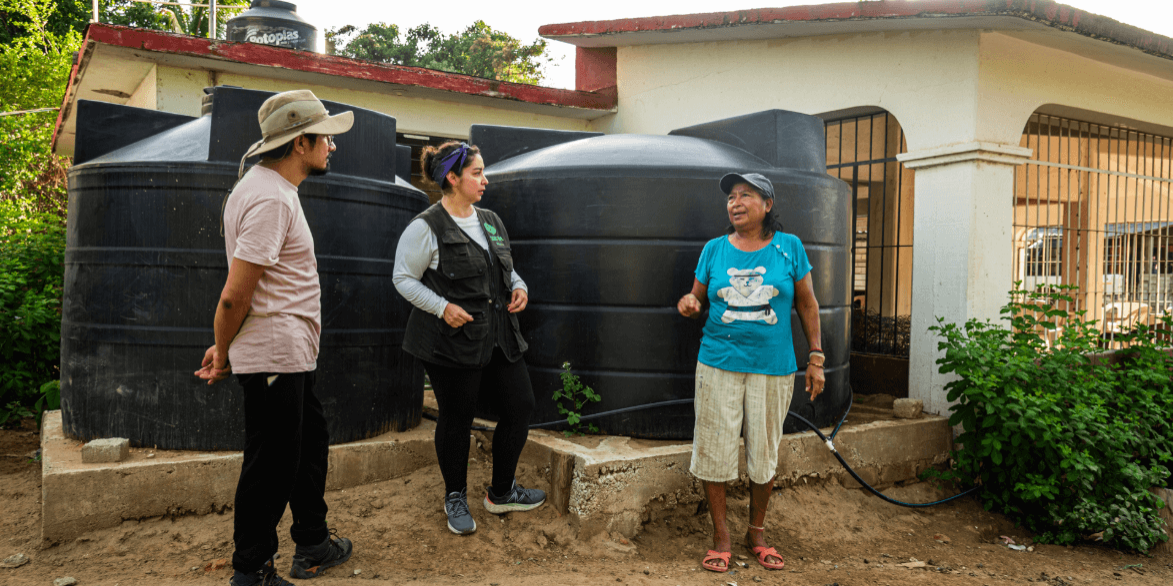
Oxfam staf, in front of newly-installed safe-drinking water stations, discuss with community members impacted by Hurricane Otis. Photo: Oxfam Mexico
IMPACT IN ACTION
- ▶ 10 safe-drinking water stations installed to prevent waterborne disease
- ▶ Community members trained to operate new water purification systems for long-term access
- ▶ Direct consultation with families ensured aid met their most urgent needs
When Hurricane Otis struck Mexico’s Pacific coast in October 2023, it tore through Guerrero state with Category 5 force — the strongest storm ever to hit the region. Entire harvests of maize and beans were lost, leaving families without food or income. Homes were destroyed, safe drinking water contaminated, and women and girls faced heightened risks of violence in the storm’s aftermath.
Oxfam Canada worked alongside local communities in rural Cacahuatepec and surrounding villages to respond quickly. Families were consulted directly on their most urgent needs from soap and detergent to clean water. Oxfam installed safe-drinking water stations, provided hygiene kits, and distributed essential food supplies. Community members were also trained to operate new water purification systems, ensuring safe water long after the emergency.
As one community leader shared: “All that help was beneficial. People no longer had money to buy anything, and these kits balanced us again.”
Floods in Bangladesh
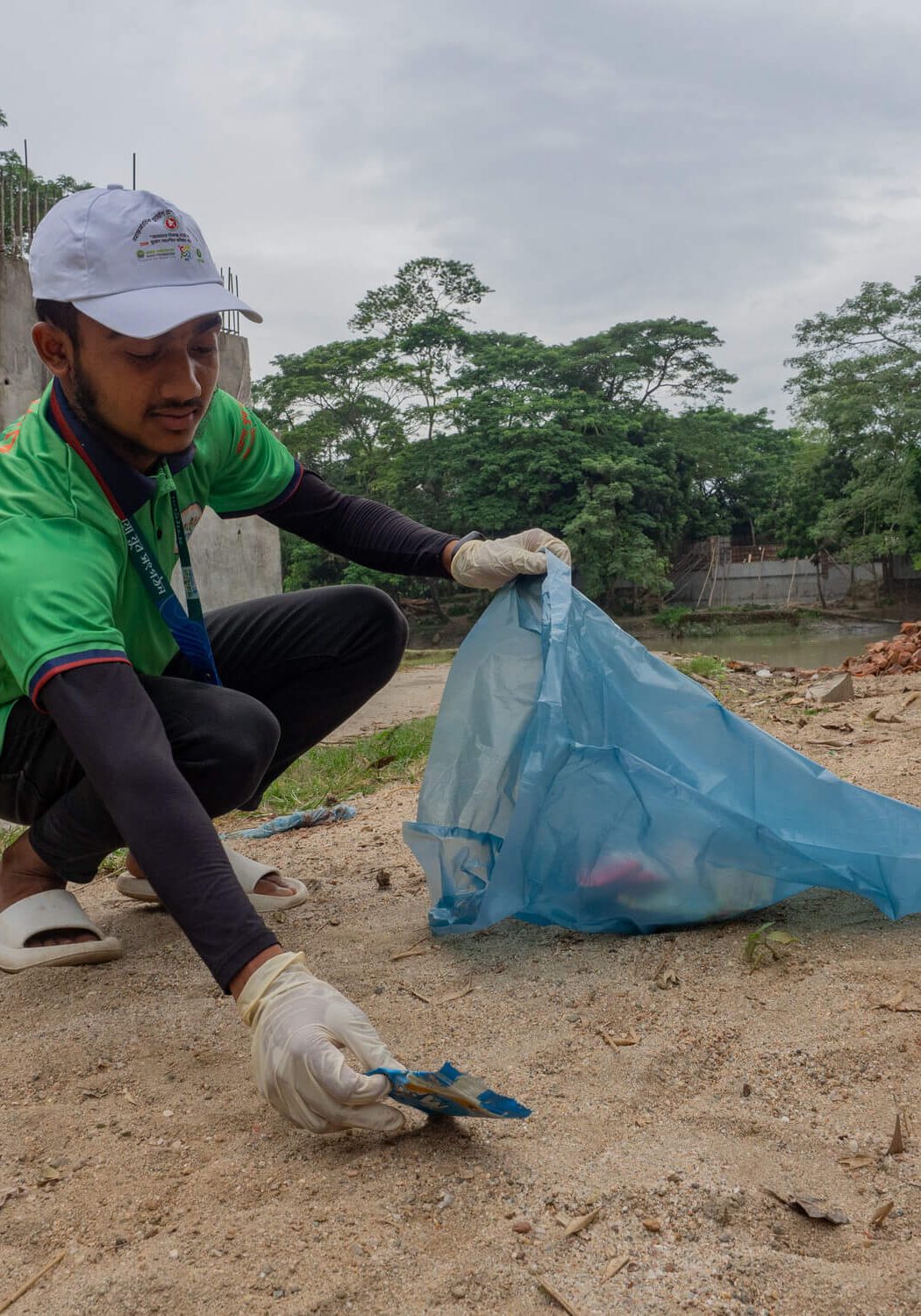
A member of a youth group in Barishal picks up trash to prevent clogging of water channels during floods. The WAVE Foundation, an Oxfam partner, supports this group in its work to reduce disaster risks. Photo: Elizabeth Stevens/Oxfam
IMPACT IN ACTION
- ▶ 27,950 people (5,590 families) reached with life-saving support
- ▶ 100 flood-damaged tube wells repaired, restoring safe drinking water for 7,500 people
- ▶ 14 new community tube wells installed, ensuring reliable access to clean water
- ▶ Emergency latrines built to provide safe sanitation for 7,500 people
In May 2022, flash floods swept through northeastern Bangladesh, submerging villages in Sylhet and Sunamganj. Rivers overflowed dangerously, destroying homes, crops, and infrastructure. Families were forced into crowded shelters while damaged tube wells and toilets left thousands without safe drinking water. Disease outbreaks spread quickly, and women and children faced the greatest risks from hunger and malnutrition to gender-based violence.
Oxfam Canada responded swiftly, reaching nearly 28,000 people with lifesaving support. Families received multi-purpose cash grants to buy food and essentials, helping restore dignity and strengthen local markets. Hygiene kits containing soap, detergent, sanitary pads, and oral rehydration salts, were distributed to prevent disease. To ensure clean water, Oxfam repaired 100 damaged tube wells, installed 14 new ones, and built emergency latrines serving thousands.
These interventions not only saved lives but also helped families recover with greater resilience in one of Bangladesh’s most flood-prone regions.
Super Typhoon Doksuri, Philippines
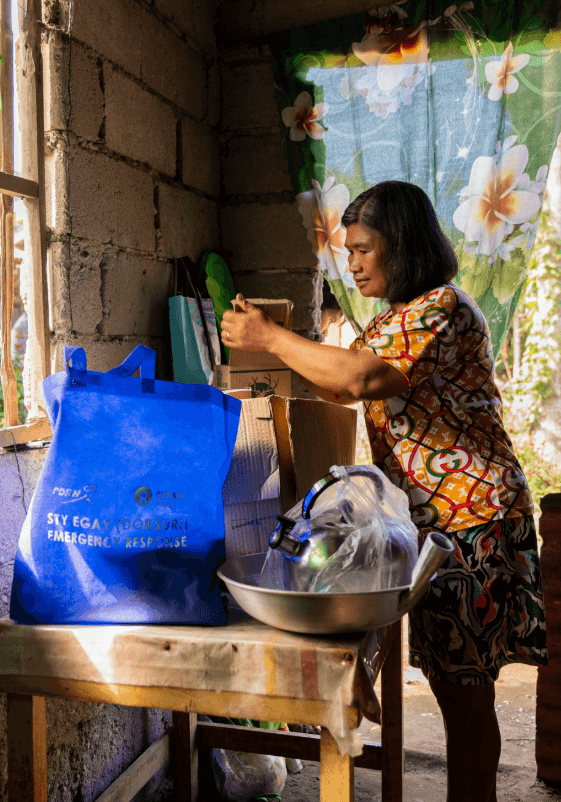
Emigine unpacks an Oxfam-provided shelter kit filled with kitchen essentials. Photo: Oxfam Pilipinas
IMPACT IN ACTION
- ▶ 7,500 people reached with life-saving aid in Cagayan province
- ▶ Families received cash assistance to buy food and essentials
In July 2023, Super Typhoon Doksuri (locally Egay) hit northern Philippines with winds of 175 km/h, torrential rains, and devastating floods. It damaged over 50,000 homes, destroyed livelihoods for nearly 187,000 farmers and fisherfolk, and left communities struggling with food insecurity, water contamination, and disrupted infrastructure.
Oxfam Pilipinas, with support from the Canadian Humanitarian Assistance Fund, reached 23,070 people (5,341 women, 5,502 men, 6,197 girls, 6,030 boys) with lifesaving aid. Interventions included distributing shelter and hygiene kits, repairing safe water points, and providing multi-purpose cash grants for nutrition, especially for pregnant and lactating mothers. Communities also received training on the “Build Back Safer” approach, psychosocial support sessions, child protection referrals, and logistical help for recovering lost legal documents.
For Tita Villon, a widowed rice farmer and day care worker, the aid was vital: “I immediately bought a sack of rice, enough to sustain me and my daughter for a month. The cash aid may not have been substantial, but its value was immeasurable for me.”
Cyclone Mocha, Myanmar
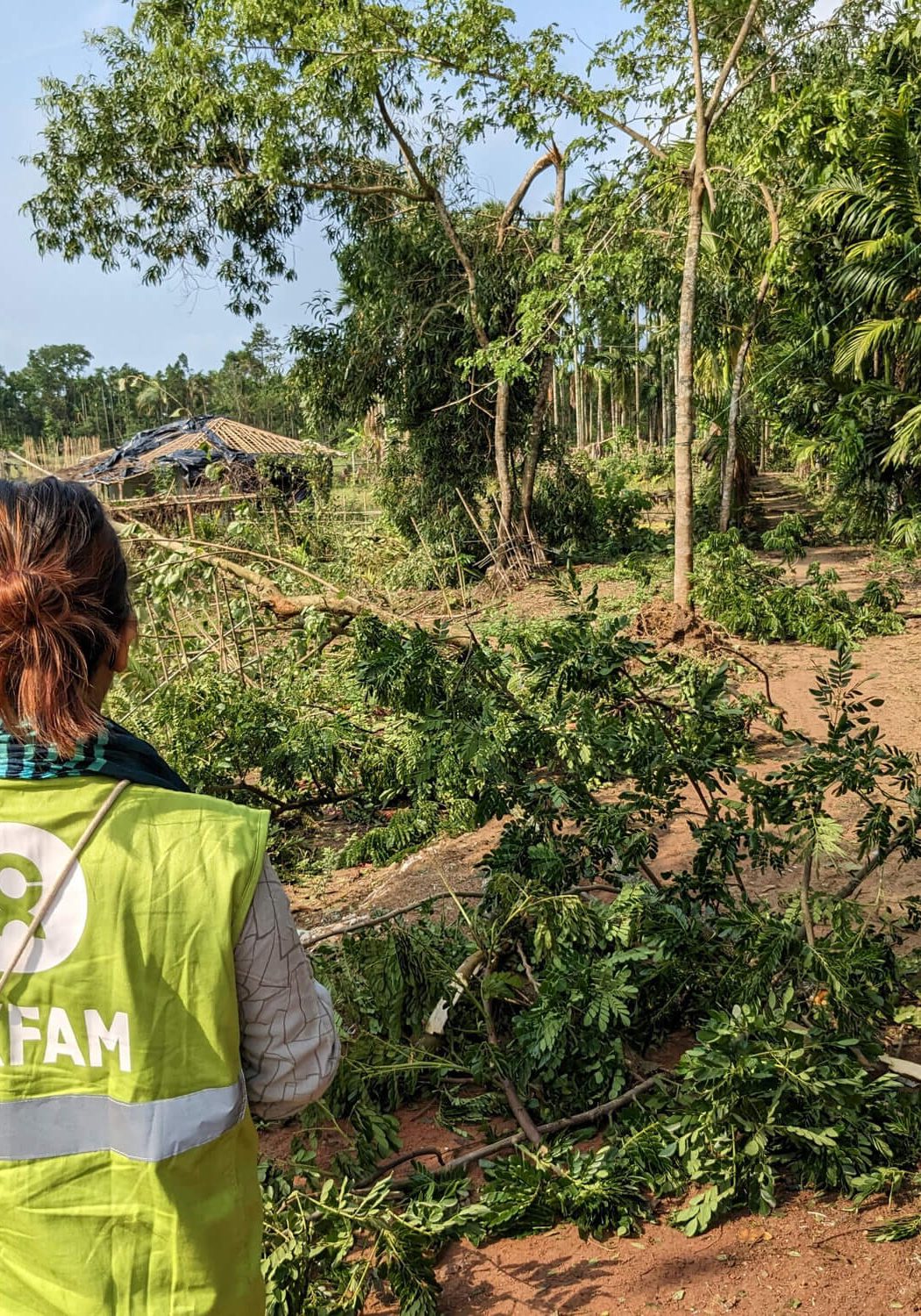
Oxfam's emergency response team on the ground, assessing needs and providing critical aid support after Cyclone Mocha's destructive path through Teknaf. Photo: Mutasim Billah/Oxfam
IMPACT IN ACTION
- ▶ 38,300 people reached with life-saving assistance
- ▶ Distributed shelter kits and trained local carpenters on "Build Back Safer" techniques
- ▶ Cash assistance provided to pregnant and lactating mothers
- ▶ Rehabilitated and repaired safe water points
In May 2023, Cyclone Mocha struck Myanmar’s western coast with devastating winds and torrential rains, causing widespread flooding, destroying homes, and disrupting livelihoods. Thousands of families lost shelter, food supplies, and access to safe water, leaving communities vulnerable to waterborne diseases and protection risks.
Oxfam responded rapidly to support 38,300 people (13,724 women, 12,739 men, 6,144 girls, 5,693 boys). Emergency interventions included distributing shelter and hygiene kits, rehabilitating and repairing safe water points, and providing multi-purpose cash grants—especially for pregnant and lactating mothers. Local carpenters and community members received technical support on the “Build Back Safer” approach, while psychosocial support and child protection sessions helped families cope with trauma. Referral assistance ensured children could access protection services and families could restore critical support structures.
These efforts gave communities the tools and resources to recover and rebuild, helping families regain stability after Cyclone Mocha’s destruction.